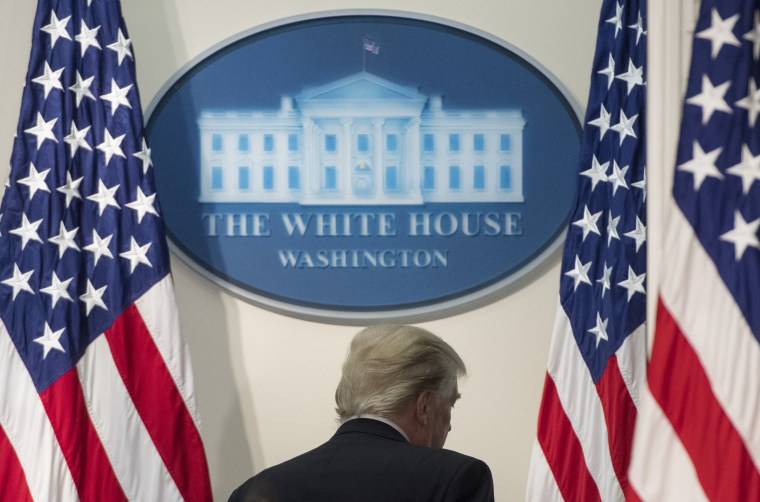A few weeks ago, when Donald Trump abruptly canceled his summit with North Korea's Kim Jong-un, the American president apparently forgot to give a heads-up to our South Korean allies. South Korean officials issued a statement saying they were "trying to figure out what President Trump's intention is and the exact meaning of it."
Of course, Trump changed direction soon after, un-canceled the summit, and ended up agreeing to scrap scheduled joint U.S./South Korean military exercises. Guess who the American president forgot to tell.
South Korea's presidential office seemed blindsided by the announcement on the joint exercises."We need to try to understand what President Trump said," a spokesman for South Korean President Moon Jae-in said.
NBC News added, “There is every indication from Seoul that the South Korean leadership and military did not know the U.S. was about to cancel Joint Military exercises.”
Trump also held a press conference before leaving Singapore, and in response to a question about the cancellation of the military exercise, the American president offered some not-so-subtle criticism of his ostensible allies.
"South Korea contributes [to the cost of the exercises], but not a hundred percent, which is certainly a subject that we have to talk to them about also," Trump told reporters. "And that has to do with the military expense and also the trade."
Taken together, which country's leaders are feeling better about their relationship with the White House this morning, South Korea or North Korea?
This is, alas, part of a larger pattern of Trump antagonism toward a key U.S. ally. It was a few months ago, for example, that Trump said at a fundraiser, in reference to South Korea, "Our allies care about themselves. They don't care about us."
Trump has also reportedly tried to deliver on one of North Korea's most ambitious goals: the withdrawal of American troops from the Korean peninsula.
As regular readers know, this has been going on for a while. Just a few months into his presidency, Trump lied about dispatching an “armada,” led by an aircraft carrier, towards the peninsula, and South Koreans weren’t pleased. When Trump falsely said the Korean Peninsula “used to be a part of China,” that didn’t go over especially well, either.
In May 2017, Trump made matters vastly worse, condemning the U.S.-Korea Free Trade Agreement, known as Korus, and threatening to trash the deal. He then said he wants to deploy a missile-defense system – Terminal High-Altitude Air Defense (Thaad) – in South Korea to help protect against a North Korean attack, but only if South Korea pays for the technology. (Then-White House National Security Advisor H.R. McMaster quietly let officials in Seoul know they should ignore the American president's bluster.)
It's as if the Republican continues to forget who the United States' friends are.
Postscript: It's tempting to think our ambassador might take steps to smooth things over in Seoul, but nearly a year and a half after taking office, the Trump administration doesn't yet have an ambassador to South Korea.
